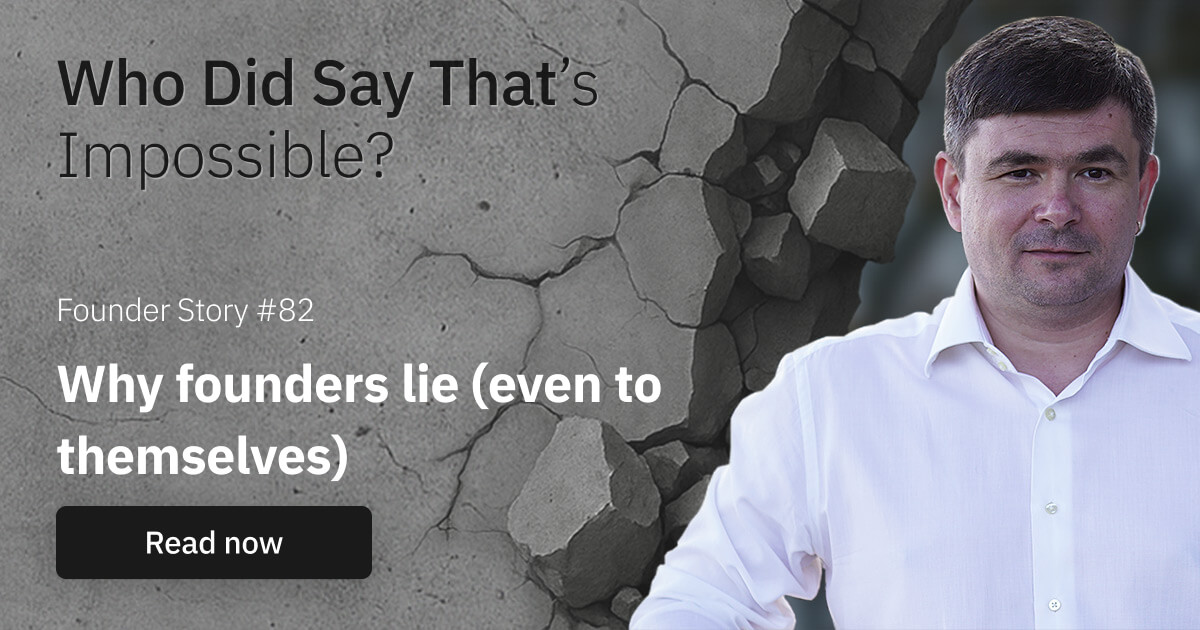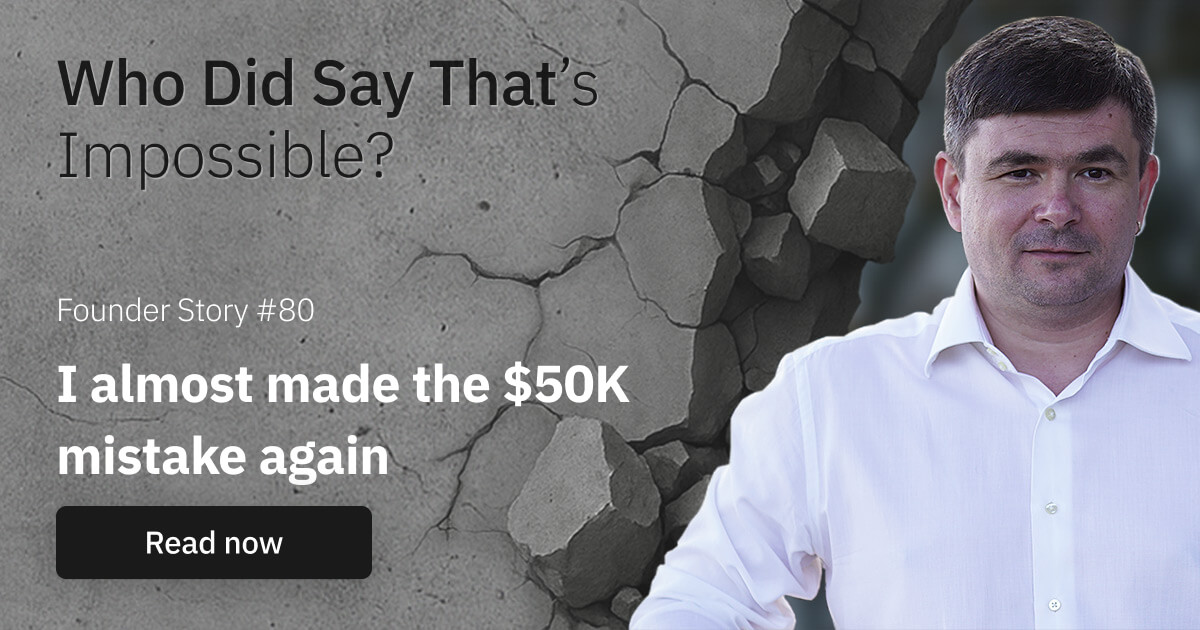The real reason you’re stuck isn’t what you think
Or minute of brutal honesty
I had a call with a founder recently.
Smart, talented, ambitious. Drowning.
She manages projects, leads designers, runs delivery, all herself.
From the outside, it looks like she’s crushing it.
But inside it’s a different story.
She told me her main problem was leads.
“I just need more clients.”
“But I don’t have time to go get them.”
She has a decent pipeline, steady demand, and a good reputation.
But no time to grow. No structure to scale. No clarity on her runway, costs, or breakeven.
I asked:
- Can you forecast confidently?
- Do you know your numbers month to month?
- Are you sure your team will be paid on time three months from now?
Her answer, every time, was no.
And still, she swore that her only problem was marketing.
But what I saw was different. She wasn’t ready to grow. She wasn’t ready to let go.
We all know this type of founders. I mean you know the type, like they think they know everything. Like one word answers.
They think they know everythign about ops and growth.
And we all know that’s just comes from fear.
And we all know that they are never gonna be successfull. If they never open up about their problems.
Founders don’t fail from lack of clients, they fail from lack of structure
I told her something that most people won’t say out loud:
“You’re not stuck because you don’t have leads.
You’re stuck because you refuse to stop controlling everything.”
She wants growth. In theory.
But in practice she’s terrified of stepping back.
Afraid to delegate. Afraid to shift her attention from doing to building.
It’s not uncommon.
I’ve seen founders stay in operational hell for years.
Not because they enjoy it.
But because it’s familiar. Predictable. Safe.
They’d rather work themselves into burnout than face the uncertainty of building a real system.
But here’s the truth:
If you can’t structure what you already have, you’re not ready for more.
And if you don’t fix it soon, it’s not just growth you’ll miss.
It’s your business that will break.
Because in a downturn, the companies that fail aren’t the ones without leads.
They’re the ones without systems.
Disclaimer.
Every business has its nuances, and every founder has their unique context and resources. Whether or not my advice applies depends on your situation, experience, and needs. But one thing is universal—use your brain.
Think about how to apply the advice in your context before acting.
Your way.
- Eugene
Join the “most offbeat” Businessletter on entrepreneurship.

Hi, I’m Eugene.
20 years later — 80 people, 3 continents, 7-figure revenue.
But for many years, I was the bottleneck in my own business.
Now I help founders escape the same trap. Through systems that actually work, not theory.
I write weekly: operational war stories, decision systems, and lessons learned the hard way.
For founders who want to build without burning out.
More Stories
Founder Stories

Why founders lie (even to themselves)
Or minute of freedom that comes after you exit

The call that stops everything
Or minute of realizing your business isn't ready for this


